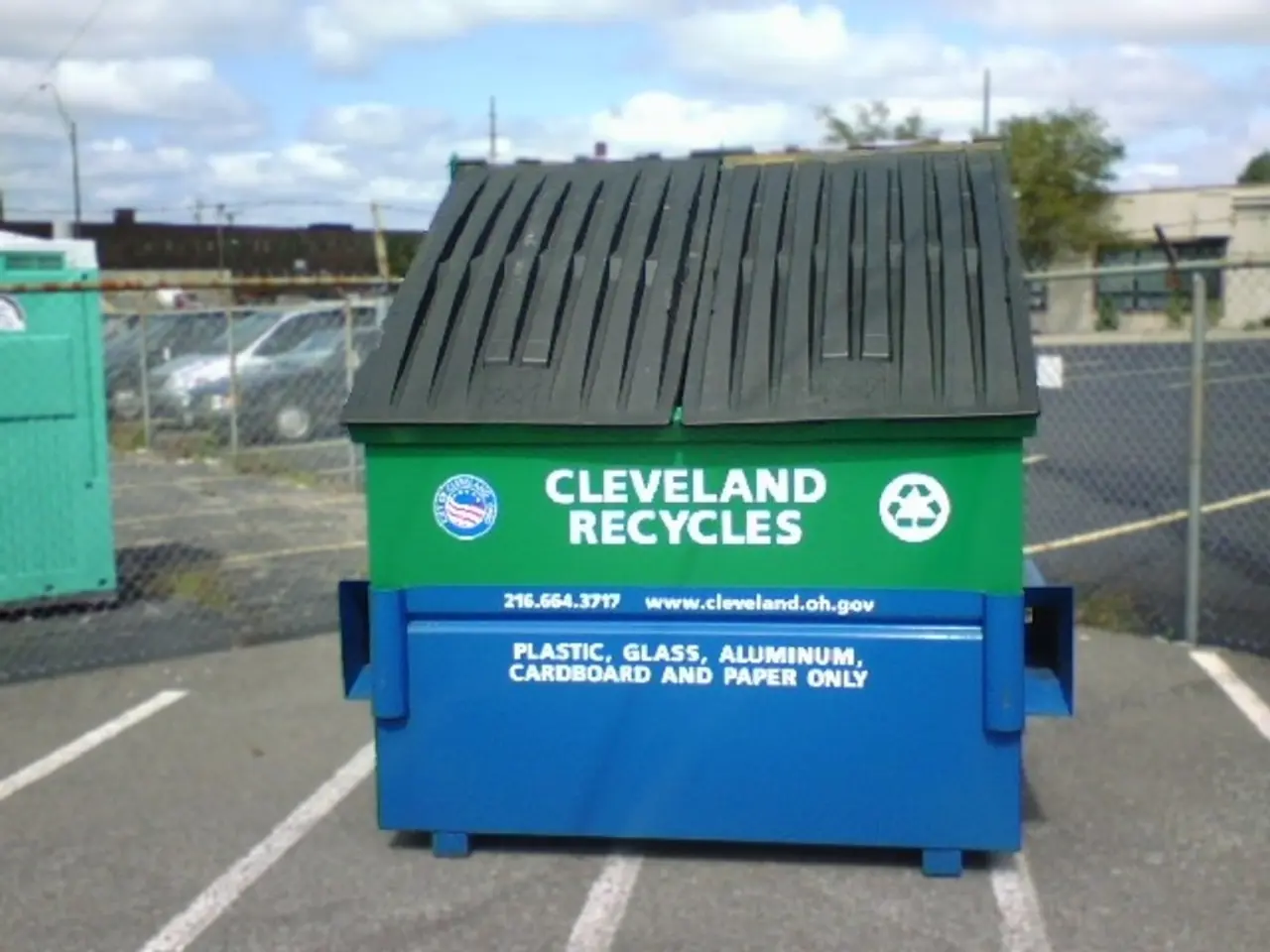Tech Giant Purchases Billions in Waste, Including Human Feces, to Combat AI Carbon Footprint - Company intends to bury waste below ground to offset AI-related carbon emissions, reportedly by Microsoft.
In a groundbreaking move, tech giant Microsoft has entered into a 12-year agreement with carbon removal company Vaulted Deep, worth over $1.7 billion at the current cost. This deal marks one of the largest long-term carbon removal agreements to date, with the aim of sequestering hard-to-reuse organic wastes like sewage sludge, manure, and paper mill waste in geological formations for over 10,000 years.
The waste, combined into a thick slurry, will be injected about 5,000 feet underground, preventing it from being dumped at a conventional waste disposal site. This innovative approach will help prevent the release of carbon dioxide into the atmosphere that would occur if the waste decomposed at a waste disposal site.
The deal involves the removal of up to 4.9 million metric tons of carbon dioxide, priced currently at roughly $350 per ton. While the financial terms were not officially disclosed by the companies, this estimate matches the going price for Vaulted Deep's carbon removal credits.
CEO Julia Reichelstein of Vaulted Deep expects costs to drop over time as the technology and deployment scale. However, the current price represents the upfront valuation for the bulk contract.
This significant investment in novel carbon removal methods reflects Microsoft's commitment to reducing its carbon footprint, particularly from data centers, which consume substantial electrical power, often from fossil fuels.
Meanwhile, other tech companies are also making strides in this area. Google, Amazon, Oracle, and others are investing in small modular reactor research to establish clean energy sources for their data center businesses.
However, not all news is positive in the tech industry. Elon Musk's company, xAI, is facing legal action in Memphis, Tennessee, for allegedly polluting the air using under-reported power generators at the Colossus Supercomputer.
It's worth noting that the decomposition of wastes in landfills, waterways, or spread on land can lead to pathogens contaminating groundwater. Projects like Microsoft's with Vaulted Deep help mitigate these risks by safely and permanently storing organic waste.
Vaulted's technique is unique as it collects organic waste instead of extracting carbon dioxide from the air or electricity production. This approach offers a promising solution to the challenge of carbon removal, contributing to a cleaner and more sustainable future.
In conclusion, Microsoft's deal with Vaulted Deep represents a significant investment in carbon removal, with costs likely to evolve as the technology and market mature. This deal underscores the potential for innovative solutions to combat climate change and the role tech companies can play in this fight.
References:
- Microsoft's Waste Disposal and Carbon Emission Offset Deal with Vaulted Deep
- The Impact of Organic Waste Sequestration on Climate Change
- The Cost of Carbon Removal with Vaulted Deep
- Microsoft's Previous Carbon Removal Deal with AtmosClear
- Market Trends in Carbon Removal Credits
- Tech Companies Investing in Small Modular Reactors
- Elon Musk's Company Faces Legal Action in Memphis
- The Risks of Conventional Waste Disposal and the Benefits of Carbon Sequestration
- Microsoft's Deal with Vaulted Deep for Waste Provision
- This innovative approach, involving the injection of waste into geological formations, is a part of the field known as environmental science, as it aims to mitigate the impact of climate-change.
- Beyond Microsoft, other tech companies like Google, Amazon, and Oracle are also investing in clean energy sources, particularly in small modular reactors, as a means to reduce their carbon footprint in the business sector.
- The collaboration between Microsoft and Vaulted Deep could potentially redefine the financial landscape of carbon removal, as the cost of carbon removal, currently around $350 per ton, might decrease over time, following the expectations of Vaulted Deep's CEO, Julia Reichelstein, as the technology matures and scales.




